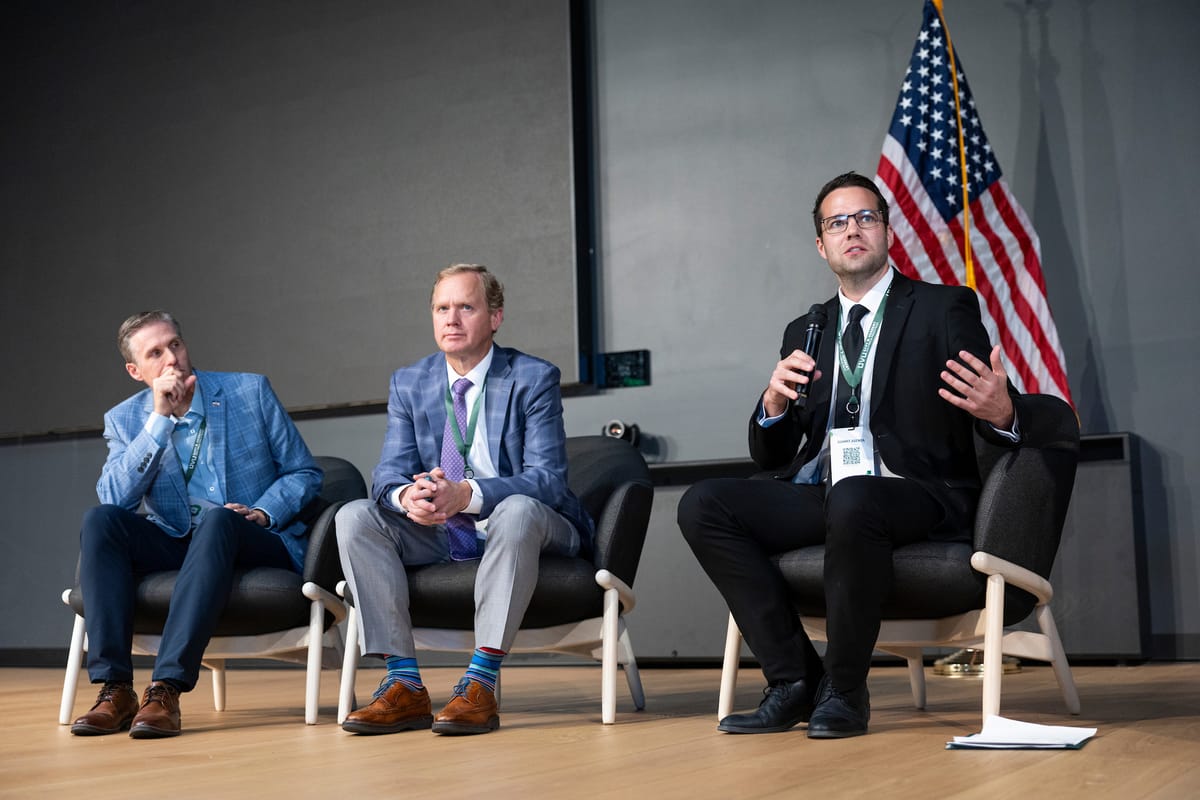

Orem, Utah — October 22, 2025
In a rapidly digitizing world, identity is no longer just a piece of paper; it is a living, evolving credential that carries the weight of personal freedom, security, and trust. At Utah Valley University, this reality was brought into sharp focus during the State-Endorsed Digital Identity (SEDI) Summit, where policymakers, technologists, academics, and concerned citizens convened to chart a path for a secure, privacy-conscious, and American-values-driven digital identity infrastructure.
Utah’s Chief Privacy Officer Chris Bramwell set the stage with a wide-ranging and impassioned opening, underscoring both the promise and perils of digital identity. “I am very optimistic about digital identity if we do it right,” Bramwell said. “We can build technology that reflects American values, protects freedoms, strengthens families, and builds trust in the digital world. But I am also a realist — the current digital ecosystem is fraught with risk.”
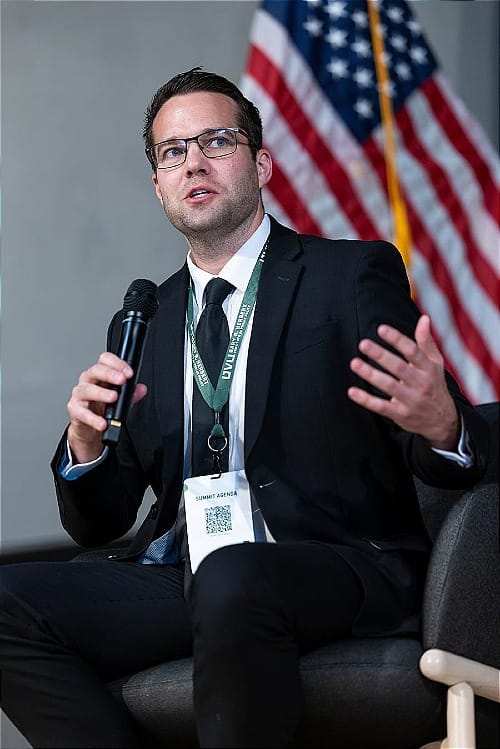
Bramwell highlighted threats ranging from online impersonation and sextortion to algorithm-driven manipulation and identity theft costing the U.S. hundreds of billions annually. He warned that governments and corporations are moving toward digital identity systems that can surveil, control, and exploit individuals, often without governance frameworks or protections for individual rights. Against this backdrop, Bramwell introduced the SEDI consortium, a multi-state initiative developing a digital identity model that preserves user control while enabling states to endorse and verify identities in the public interest. “Identity belongs to the person, not the government,” he said.
Understanding Digital Identity: Lessons from History and Tech
Ryan Hurst, CEO of Peculiar Ventures (Kirkland, WA), drew on three decades of experience at Google, Microsoft, and Amazon to explain that digital identity is not new but a modern iteration of an age-old challenge. “Identity is not new,” he said, showing a clay tablet from 1900 B.C.E. used by merchants to authenticate transactions with thumbprints. Modern digital identity, he explained, differs fundamentally from paper credentials: it is “a living credential that exists over time,” requiring governance and lifecycle management.
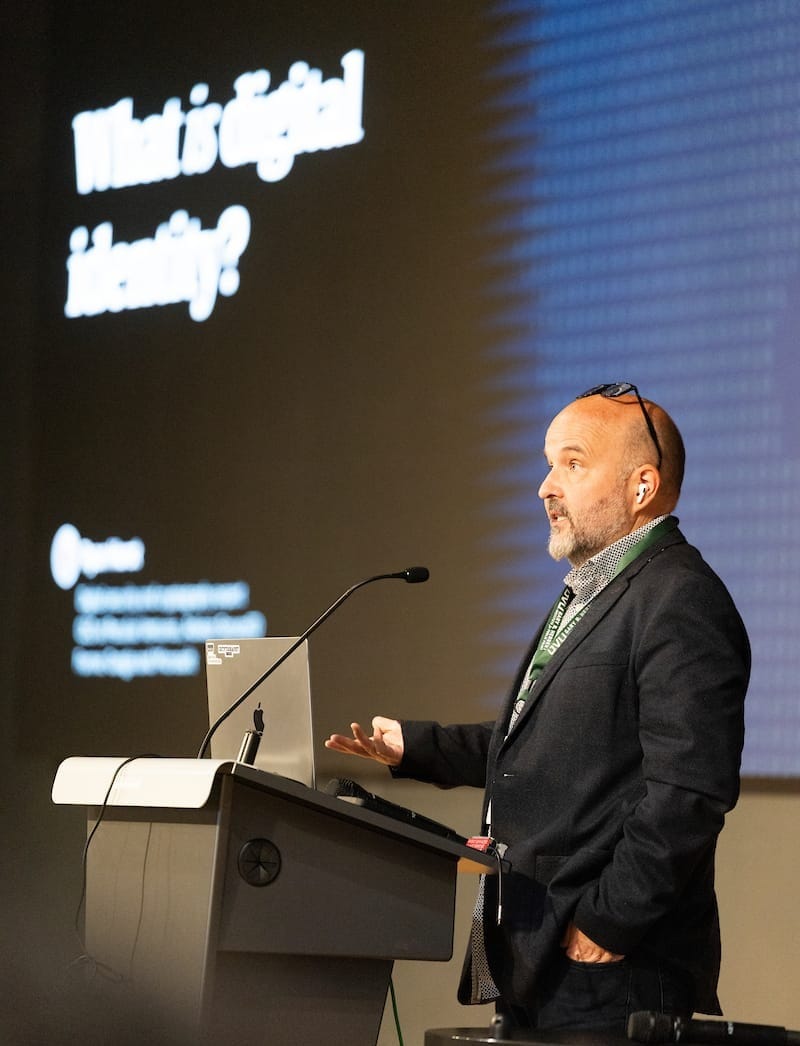
Hurst noted that seven out of ten digital identity projects fail because they treat identity as a technology problem rather than a governance challenge. He cited Germany and the UK as cautionary examples of technically sound but poorly adopted systems, contrasting them with Estonia and Sweden, which succeeded by focusing on practical utility scenarios and robust governance. “The foundation of how the federal government interacts with Americans — and how the world interacts with Americans online — depends on strong digital identity systems,” Hurst emphasized.
Policy Principles and Governance: The SEDI Approach
A key takeaway from both Bramwell and Hurst was governance and user control. Under SEDI, identities are state-endorsed, not state-controlled. The individual retains the core identifier, while the state verifies authenticity. Systems are designed for transparency, privacy, and resilience, with clear policies to govern lifecycle management, credential revocation, and cryptographic updates.

Hurst stressed holistic planning: identity is infrastructure, not a product. It must accommodate users who struggle with digital tools, integrate with existing systems, and measure effectiveness against clear metrics. “When policy changes, how does digital identity get affected?” he asked. “How are you going to create demand for this thing if it has no utility for the people who are supposed to use it?”
The Human Cost: Cindy George’s Testimony
While policy and technology framed the morning sessions, Cindy George delivered a heartbreaking testimony in the afternoon, recounting her son Jake’s death by suicide following online extortion. Jake, a compassionate young man, was coerced into sending images and making payments within five days, ultimately taking his own life. “The hell that I go through thinking of those last moments… No mother should have to bury their son,” George said. Her story illustrated why SEDI’s principles of privacy, verifiable identity, and security are not abstract concepts — they can save lives.
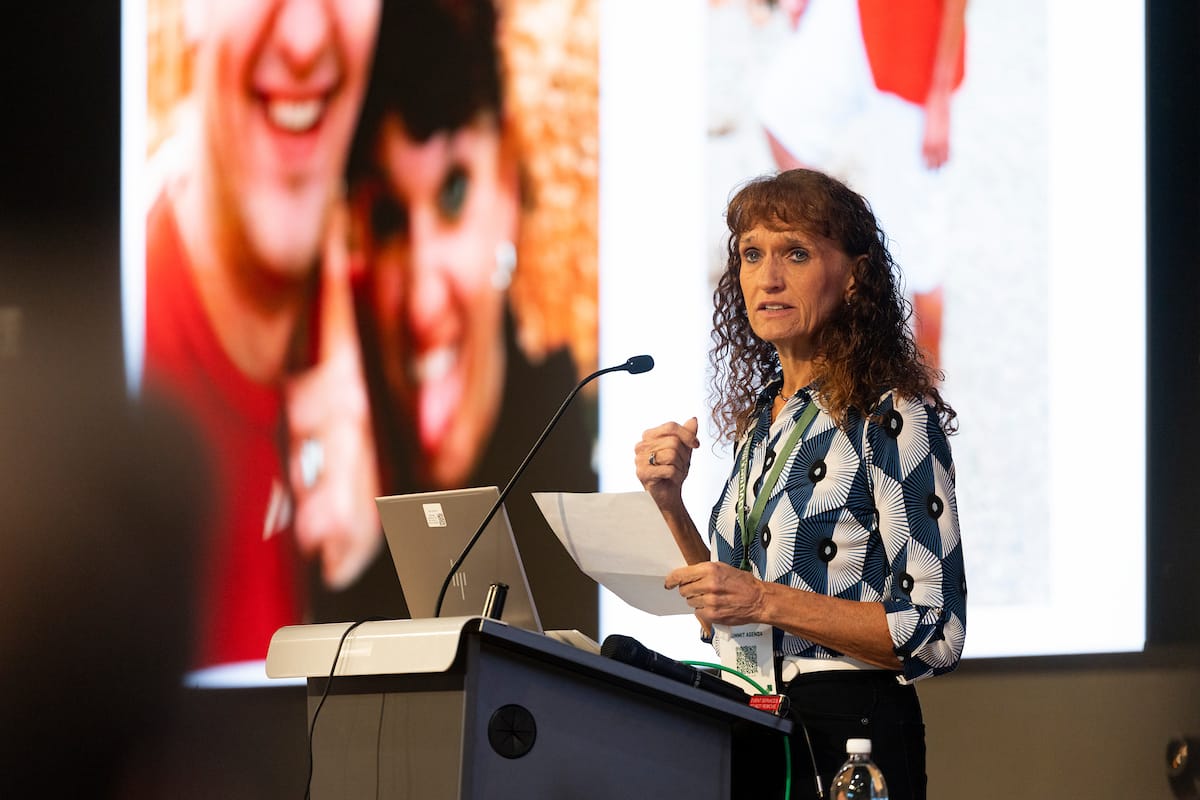
Afternoon Sessions: Implementing SEDI
Legislators including Senator Cullimore, Representatives Cutler, Chevier, and Shepard discussed the importance of state-led digital identity frameworks and bipartisan support for policies that protect citizens while fostering innovation.
Timothy Ruff, Chief Strategy Officer of Digital Trust Venture Partners (Salt Lake City), explained the technical and legal foundations of SEDI, highlighting guardianship and delegation, mechanisms enabling secure, verifiable digital interactions:

- Delegation: Temporarily assigns duties without transferring legal responsibility (e.g., a parent delegating school pickup to a neighbor).
- Guardianship: Legally transfers authority and responsibility, allowing designated individuals to act for children, the elderly, or other dependents.
Ruff described ten modular cryptographic tools underpinning SEDI, including verifiable containers, secure attribution, non-repudiation, chained signatures, consent management, revocation, graduated disclosure, and detection/recovery mechanisms. “Legos, not a toolbox,” he explained, emphasizing flexibility and composability.
Delegation also extends to AI agents, enabling constrained, verifiable authority for autonomous systems. “I know my mom could talk to an agent and ask it to do something she struggles to open on her phone… SEDI is ideal for delegating through agentic AI,” said Ruff.
Guardianship Demo
Thomas Mayfield, Fergal O'Connor, and Jeremy Firster from the Cardano Foundation (Zug, Switzerland) demonstrated a guardianship proof-of-concept using the Veridian platform, an open-source system for secure, user-controlled digital identity. The system enables guardianship and delegation in a decentralized, privacy-respecting environment:
- Birth certificates and guardianship credentials stored in peer-to-peer digital wallets, keys retained at the edge.
- Passwordless authentication and cryptographically verifiable credentials replace usernames and passwords.
- Parents can customize children’s access to platforms, including time limits, content ratings, and interaction rules.
- Children and parents can issue, hold, and validate credentials without centralized servers.
The Cardano Foundation panelists emphasized, “This is not tech providers dictating what the state can use. This is technology built based on policy and law.” Veridian leverages Key Event Receipt Infrastructure (KERI) and Authentic Chained Data Containers (ACDC) to provide verifiable, delegatable credentials with privacy and auditability.
A National Model Rooted in American Values
Throughout the summit at UVU, SEDI was presented as a uniquely American approach, rooted in Utah's brand of collaboration, transparency and innovation, while balancing privacy and security. Bramwell noted, “SEDI will provide the foundation for individuals and businesses to derive value…proof of identity, replacement of usernames and passwords, consent management, delegation for vulnerable populations, and AI that extends agency rather than replaces it.”
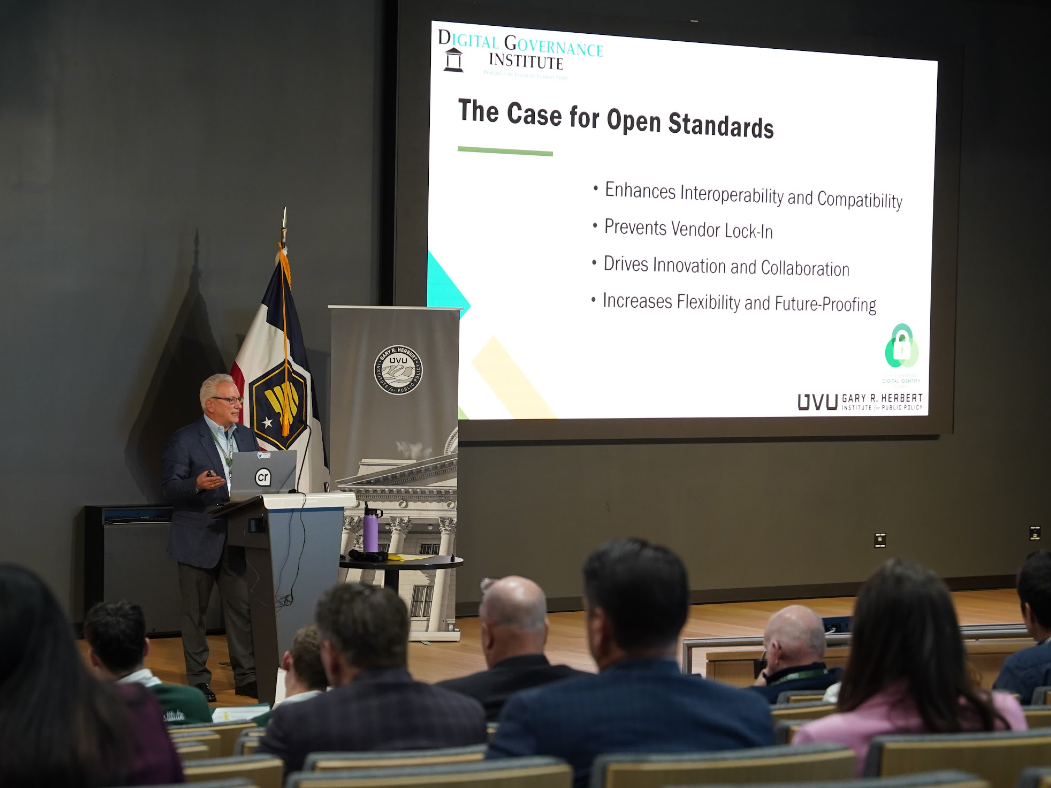
Looking Forward: Challenges and Opportunities
The conference highlighted opportunities and hurdles: funding disparities, technological integration, public adoption, and evolving threats. Yet, by prioritizing governance, transparency, and human-centered policy, states can establish a national model for secure and trusted digital identity. For policymakers, technologists, and citizens alike, SEDI offers the chance to define a system aligned with American values and human dignity, while preventing exploitation in the digital world.
To learn more about the SEDI Summit, or to view recordings of all sessions, visit the Summit page at the UVU Herbert Institute for Public Policy.
View the SEDI paper created by the Utah Department of Government Operations for additional details on State-Endorsed Digital Identity.

